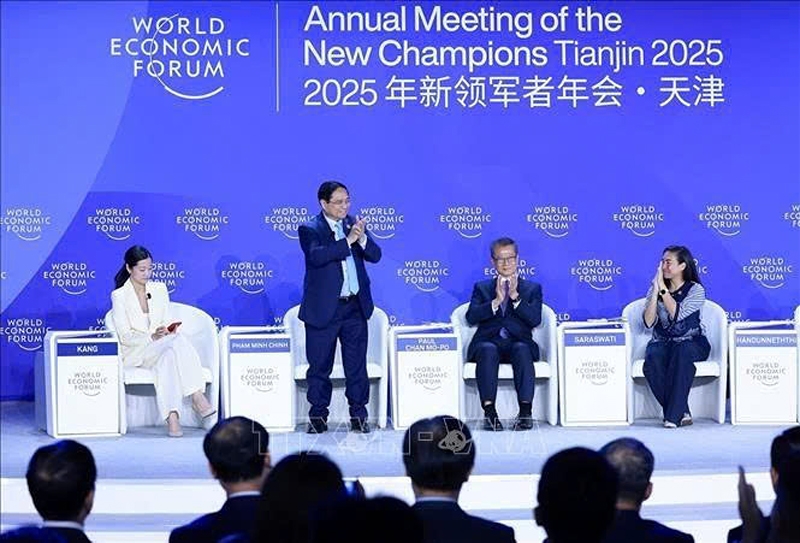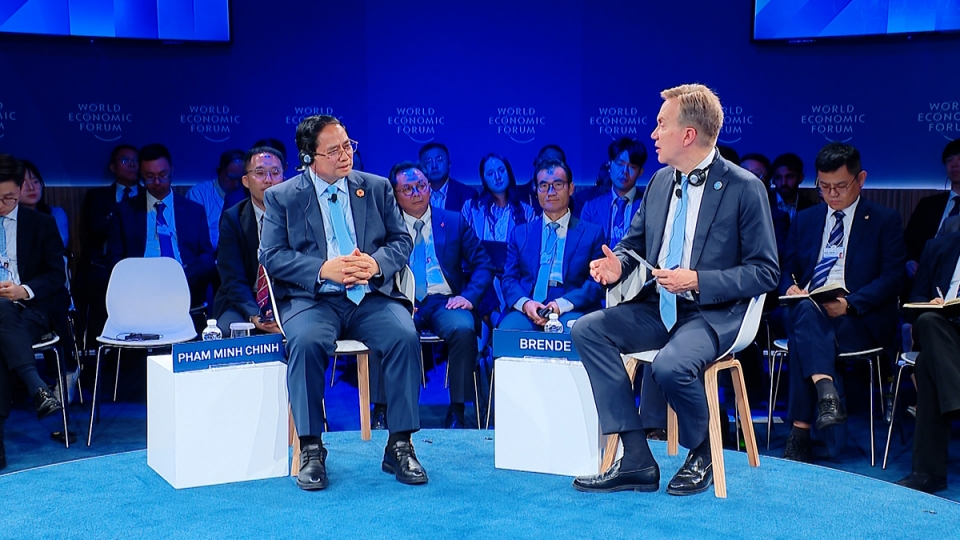Vietnam outlines vision for prosperous, sustainable Asian century at WEF meeting
VOV.VN - At a pivotal session of the World Economic Forum held in Tianjin, China, on June 25, Vietnamese Prime Minister Pham Minh Chinh outlined both the challenges and opportunities facing Asia today, while proposing key strategies to foster sustainable development, innovation, and regional solidarity.

Addressing delegates at the session titled “Is Asia’s Century at Risk,” Chinh noted that Asia is living in a world full of volatility and uncertainty, marked by political polarisation, economic fragmentation, and social disparities. The continent faces significant risks including geopolitical tensions, protectionism, inflationary pressures, natural disasters, pandemics, climate change, resource depletion, and aging populations.
Despite these challenges, he undercored Asia’s many advantages, namely its strategic location, robust economic growth potential, a rapidly expanding middle class, improved infrastructure and financial systems, and active integration and cooperation with the rest of the world.
“Asia has faith and hope,” the Prime Minister affirmed, citing a solid foundation rooted in politics, economy, culture, and society. With over half a decade of continuous innovation and integration efforts, Asia has accumulated the strength, resilience, and valuable experience necessary to overcome crises and ensure no one is left behind.
The Prime Minister expressed confidence that China, given its global influence, will remain a vital pillar in shaping Asia’s development alongside the world. He praised China’s role in promoting connectivity, spearheading future-oriented initiatives, and consistently demonstrating responsible leadership during times of difficulty.
To build a prosperous and sustainable Asian century, the Prime Minister proposed five strategic pioneers. The first is pioneering the maintenance of peace, stability, cooperation, and development. This involves steadfastly protecting core values in international relations, proactively managing dialogue and differences, and expanding connectivity both within and beyond the region. It also means upholding multilateralism and respecting international law.
The second pioneer focuses on advances in science, technology, innovation, digital transformation, and the green transition. The goal is to shift Asia’s role from being the world’s manufacturing factory to becoming a global innovation hub.
The third pioneer emphasises the need to connect value chains and promote economic linkage as well as global integration. This requires fostering cooperation based on harmonised interests and shared risks.
The fourth pioneer encourages the spirit of entrepreneurship, innovation, and enterprise development. To support this, the investment environment must be improved to become more transparent and internationally competitive. The World Economic Forum plays a key role in attracting global investors to the region.
Finally, the fifth pioneer involves strengthening cultural and social connectivity, by placing people at the centre of development policies, respecting diversity while fostering unity, and prioritising the empowerment and engagement of youth.
In addition, the Vietnamese Prime Minister proposed establishing an Asian Innovation Network to leverage the leading roles of the WEF and China in connecting research institutes, universities, and businesses; and building an Asian Innovation Portal, to provide practical and effective support for small and medium enterprises and innovative startups.
Affirming Vietnam’s readiness to actively participate, he expressed hope for strong cooperation and support from the World Economic Forum, China, and other nations to bring these initiatives to fruition.
In conclusion, the Prime Minister said he believes with solidarity, responsibility, determination, and decisive action, Asia’s century will be an opportunity, not a challenge, to build a future of peace, cooperation, and shared prosperity in the region and the rest of the world.





